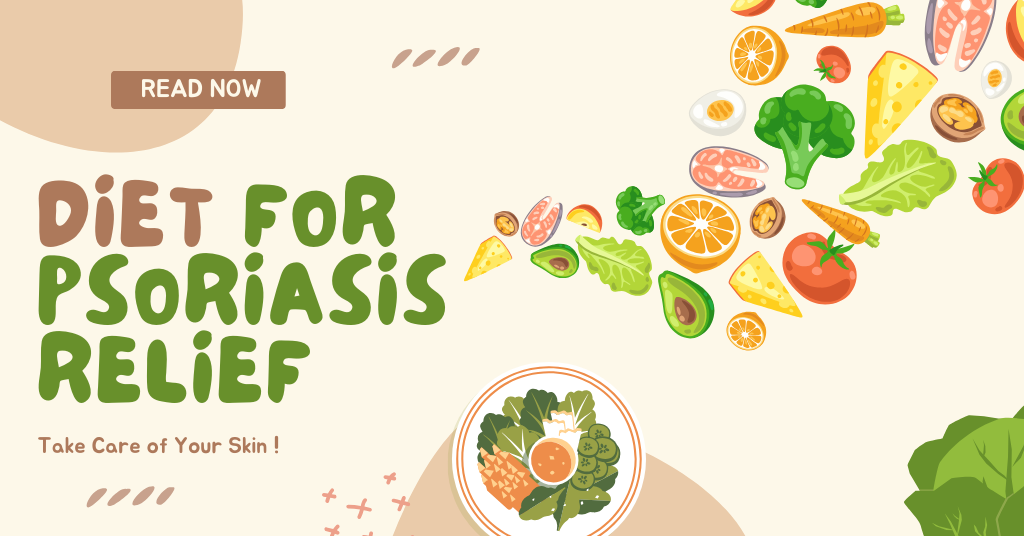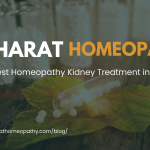Nourishing Your Skin: Diet Strategies for Psoriasis Relief
Are you noticing red, raised patches of skin with silvery scales or dry and cracked skin that may start bleeding? Understanding that this could be more than a simple skin problem is essential. These symptoms could be indications of Psoriasis, a condition that can worsen over time if not adequately addressed. This blog is dedicated to exploring a diet suitable for individuals with psoriasis, aiming to manage their condition effectively.
Understanding Psoriasis
Psoriasis is a chronic autoimmune condition that causes skin cells to build up rapidly as your immune system becomes overactive. It often leads to inflammation, raised plaques, and scales with redness surrounding them. The scales are usually white or silver and form thick, red patches. Sometimes, these patches can crack and bleed. Generally, skin cells grow and shed in about a month. But with psoriasis, this process happens in just three or four days. Instead of shedding, the skin cells accumulate on the skin’s surface. Scales commonly appear on joints like elbows and knees. However, they can appear on any part of your body, such as hands, feet, neck, scalp, nails and face. There are various types of psoriasis, such as pustular, plaque, inverse, erythrodermic and Guttate Psoriasis. Understanding the distinctions between Psoriasis Types and seeking appropriate care is essential.
The Psoriasis-Diet Connection
The connection between your dietary choices and psoriasis is of great interest. A healthy diet is crucial for managing symptoms and improving patients’ well-being. It has been observed that certain foods can have an impact on your symptoms. By being mindful about what you eat, you can reduce the signs of this skin condition. Studies have indicated that a diet high in fruits, vegetables, and whole grains may help. These foods are rich in vital vitamins, minerals, and antioxidants that support healthy skin and bolster the immune system. A diet tailored to patients’ needs can provide them with the necessary nutrients to keep their skin’s healing process and enhance their quality of life. You may manage your condition proactively and see a decrease in symptoms by following a nutritious and well-balanced Psoriasis Treatment Diet.
Foods to Avoid
Processed Foods – Limiting processed and fried foods consumption is essential in a psoriasis-friendly diet. These foods often contain trans fats and excessive sodium, leading to inflammation and skin irritation. The following foods should be sidestepped:
- Sodas and other sweetened drinks
- Pastries, cookies and ice creams
- Processed cheese products
- Prepackaged food
- Breakfast cereals
- Bacon
- Eggs
Nightshades – The name alone sounds ominous. “Nightshades are a group of vegetables to which some people can react,” said Dr. Mahima, our skin expert. Psoriasis flare-ups are frequently linked to the consumption of nightshades. Nightshade plants contain solanine, a compound shown to disrupt digestion, potentially causing inflammation while lacking any positive effects. The following members of the nightshade family should be avoided:
- Tomatoes
- Eggplant
- Potatoes
- Peppers
Gluten – Studies suggest that following a gluten-free diet helps reduce flare-ups. Gluten is a protein group found in wheat and other related grains such as rye, barley, and oats. Gluten sensitiveness can be caused by Celiac disease. Celiac disease is an autoimmune condition that produces gluten sensitivity when consuming wheat-containing food. You should avoid the following:
- Pasta, noodles, and baked items made from wheat, rye and barley
- Certain sauces and condiments
- Wheat and wheat derivatives
- Malt drinks and beer
- Malt, rye, and barley
- Processed food
Red Meat and Dairy – Certain animal products, including red and processed meats and dairy, might be pro-inflammatory, according to Dr. Mahima, since they are high in trans and omega-6 fats and may be converted to an unsaturated fatty acid known as “arachidonic acid.” The following foods should be avoided:
- Sausage, bacon, and processed red meats
- Eggs and dishes containing eggs
- Red meat, particularly beef
- Full-fat cheeses
- Whole milk
Alcohol – Because it disrupts the immune system’s different pathways, alcohol is believed to be a substantial trigger. Excessive alcohol intake causes your liver to work extra hard. To metabolise the alcohol, it generates molecules, which might cause long-term inflammation if you drink frequently.
Foods to Eat
Fruits and Vegetables – Fruits and vegetables possess powerful antioxidants, provide complex carbohydrates with abundant fibre, and offer a wide range of crucial vitamins and minerals that aid in reducing oxidative stress and inflammation. Make sure to incorporate fruits and non-starchy vegetables into your meals regularly. Some choices to consider are:
- Cauliflower, brussels sprouts, asparagus, broccoli, and onions
- Dark, leafy greens like kale, arugula, and spinach
- Berries, cherries, grapes, pears, and melons
- Purple carrots, radishes, and pumpkin
Fatty Fish – Omega-3 fatty acids in various fish offer anti-inflammatory benefits. Consuming omega-3s has been associated with a reduction in inflammatory compounds and overall inflammation. These fatty acids can effectively manage psoriasis due to their anti-inflammatory properties. Recommended fish options for consumption are:
- Salmon (both fresh and canned)
- Lake trout
- Mackerel
- Sardines
- Tuna
- Cod
Heart-Healthy Oils – Include the following oils in your diet for their anti-inflammatory properties and a higher ratio of omega-3 to omega-6 fatty acids:
- Safflower oil
- Flaxseed oil
- Coconut oil
- Olive oil
High-Quality Proteins – A well-balanced diet incorporating protein-rich foods can minimise symptoms’ severity and frequency. It is advisable to choose protein sources considered “high-quality,” regardless of whether they are derived from animals or plants. Some examples of protein-rich foods are:
- Fish
- Almonds
- Avocado
- Walnuts
- Lentils
- Beans
Herbs and Spices – Boost your intake of these flavour enhancers:
- Add more turmeric, cinnamon, nutmeg, black pepper, cayenne, and other spicy dried chilli peppers to your meals
- Add cardamom, cilantro, parsley, rosemary, and basil to your dishes for extra flavour
It is essential to talk with a specialist or a registered dietitian to create a personalised and Best diet for psoriasis that suits individual needs and addresses specific triggers.
Summing up
People are unique, and their bodies will respond differently to various foods. Nutrition and dermatology experts suggest that the above mentioned are certain foods to include and others to avoid to enhance your overall diet and decrease inflammation, which may reduce the occurrence of psoriasis flare-ups. It is helpful to list foods that appear to affect your skin so you can track them and discuss them with your doctor regarding your diet. Remember to note any dietary changes and symptoms you may notice. If you have any questions or need assistance managing psoriasis, consult us.
Ayurveda or Homeopathy?
The comparison between Ayurveda and Homeopathy in treating psoriasis reveals that homeopathy is considered a more practical option, while Ayurvedic Psoriasis Treatment doesn’t provide efficacy. Homeopathic Treatment for psoriasis is often viewed as a highly effective treatment option, owing to its unique principles and approach towards healing. Homeopathy, a system based on the principle of “like cures like,” utilises highly diluted substances to stimulate the body’s natural healing response, promoting long-term healing rather than just suppressing the symptoms. Homeopathic Medicine for Psoriasis is prepared from organic substances with no harmful side effects. Unlike conventional medicine, homeopathy treats the individual as a whole, considering their unique symptoms, medical history, and emotional well-being. This approach has shown promising outcomes in managing psoriasis symptoms and promoting long-term remission.
On the other hand, ayurveda’s reliance on herbal remedies and lifestyle modifications may not always provide the desired outcomes for specific individuals. While ayurveda may offer some relief, it may not be as potent or targeted as homeopathy in addressing the condition’s underlying causes. Therefore, Psoriasis Treatment by Homeopathy is a more favourable option, considering the available evidence and patient experiences. It is crucial to seek advice from a certified healthcare professional to find the best treatment method for each person.
Our Treatment
Bharat Homeopathy is the ideal choice for those seeking effective homeopathic treatment for their conditions due to its exceptional reputation. Our hospital has gained widespread recognition for successfully treating many ailments. With a unit of skilled and experienced homeopathic doctors, we are devoted to providing the highest quality care to our patients. Our approach to treating psoriasis involves a holistic and personalized approach, considering each individual’s unique needs and symptoms. By combining traditional homeopathic remedies with modern advancements in medical research, we strive to achieve long-lasting and sustainable results for our patients. Trust Bharat Homeopathy for a comprehensive and effective treatment for psoriasis and experience a difference in your health and well-being.


